- Details
- Category: Senator Robert Peters News
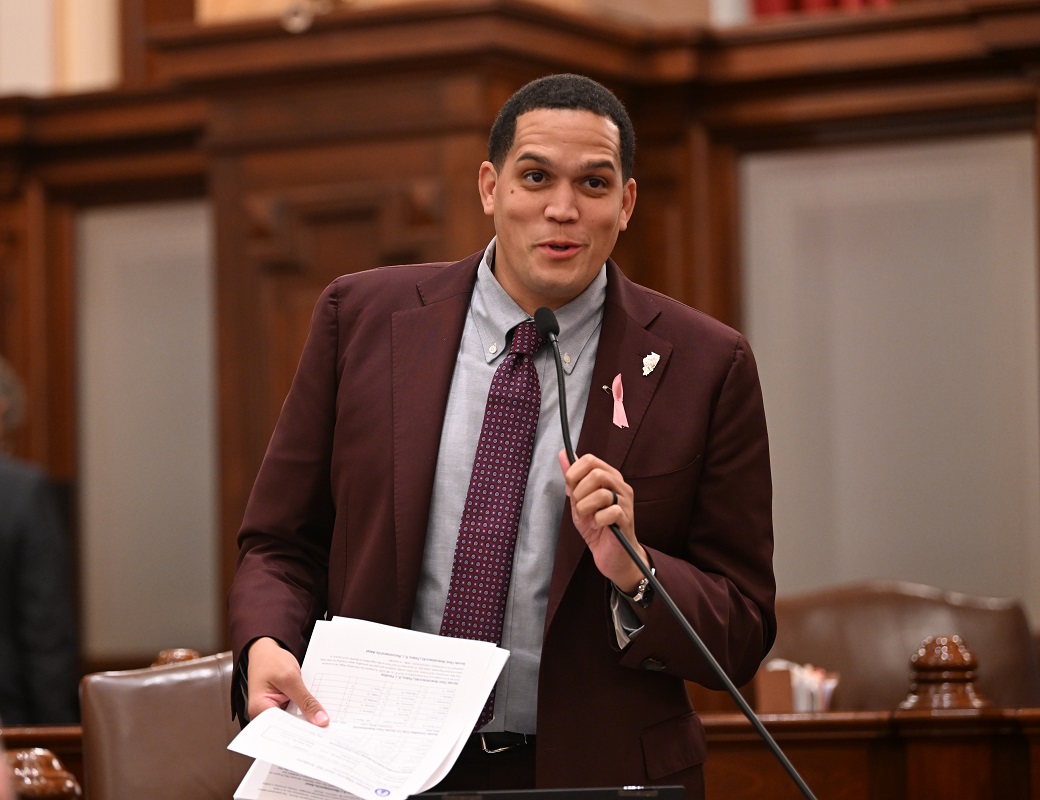 SPRINGFIELD — A new law from State Senator Robert Peters will raise the minimum age at which minors can be detained and limit detention in certain situations where the minor is not charged with a violent crime, making it clear the state is prioritizing rehabilitation and addressing the root causes of delinquent behavior.
SPRINGFIELD — A new law from State Senator Robert Peters will raise the minimum age at which minors can be detained and limit detention in certain situations where the minor is not charged with a violent crime, making it clear the state is prioritizing rehabilitation and addressing the root causes of delinquent behavior.
“We must work together to tackle the underlying issues that are exacerbating delinquency in our neighborhoods – whether those are social, economic, familial or a mix of all,” said Peters (D-Chicago). “We have an obligation to protect the well-being of all individuals, and we do that by breaking the cycles of violence and trauma that are causing young people to engage in any level of criminal activity.”
Peters’ law makes numerous improvements to Illinois’ juvenile justice system. First, it raises the age at which a minor may be detained from 10 years old to 12 years old in 2026 and then to 13 years old – in some situations – in 2027. Under the law, arrest will be used only as a last resort and under strict conditions, and minors will be detained only if there is probable cause to believe they are delinquent and that immediate and urgent detention is necessary, or if they have repeatedly failed to appear at scheduled hearings.
Read more: Peters spearheads law to raise Illinois’ juvenile detention age
- Details
- Category: Senator Robert Peters News
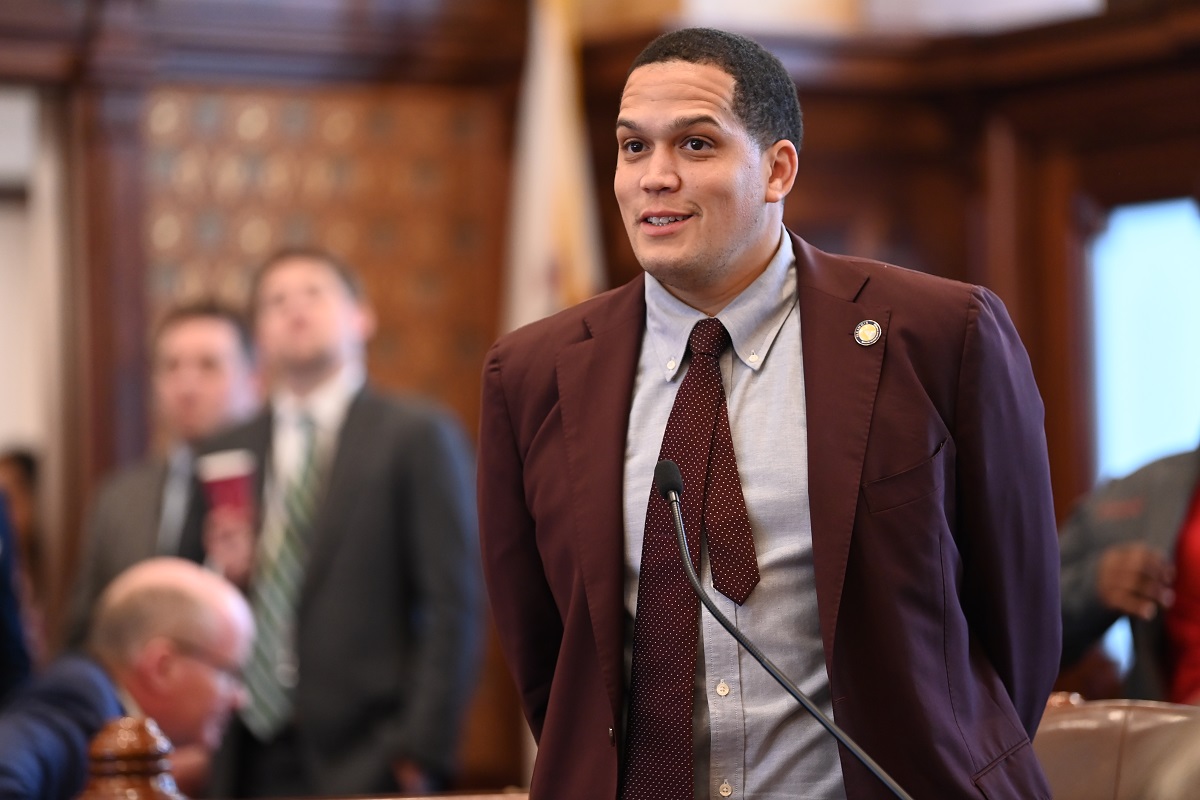 SPRINGFIELD — An initiative from State Senator Robert Peters aims to raise the minimum age at which minors can be detained and limit the use of detention in certain situations where the minor is not charged with a violent crime, making it clear the state is moving away from harsh detention practices and prioritizing rehabilitation.
SPRINGFIELD — An initiative from State Senator Robert Peters aims to raise the minimum age at which minors can be detained and limit the use of detention in certain situations where the minor is not charged with a violent crime, making it clear the state is moving away from harsh detention practices and prioritizing rehabilitation.
“Our juvenile justice system should focus on rehabilitation over punishment,” said Peters (D-Chicago). “By raising the age at which a minor can be detained and emphasizing alternative methods, we’re giving young people a fair chance at reformation without subjecting them to the damaging effects of detention at an early age.”
Peters’ measure makes numerous improvements to Illinois’ juvenile justice system. First, the bill raises the age at which a minor may be detained from 10 years old to 12 years old in 2026 and then to 13 years old – in some situations – in 2027. Through the measure, arrest would only be used as a last resort and under strict conditions, and minors can only be detained if there is probable cause to believe they are delinquent and that immediate and urgent detention is necessary, or if they have repeatedly failed to appear at scheduled hearings.
Read more: Peters’ measure to raise juvenile detention age, focus on rehabilitation
- Details
- Category: Senator Robert Peters News
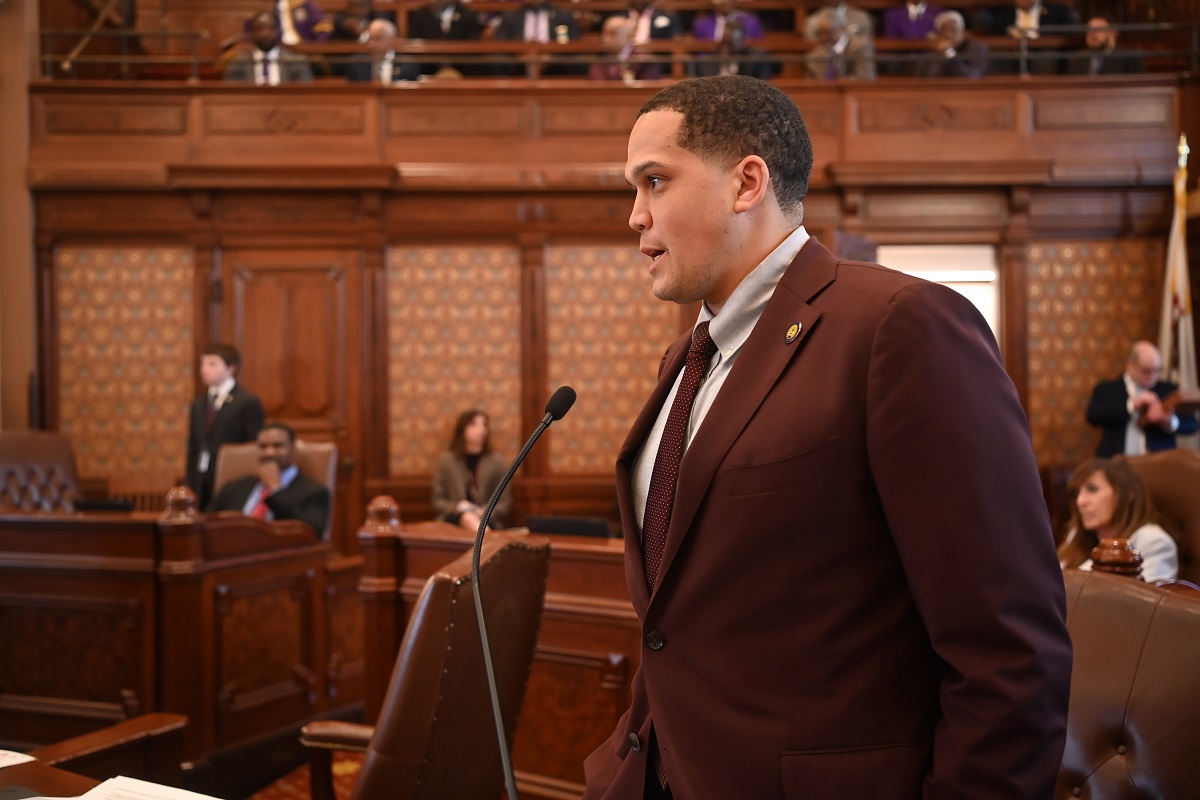 SPRINGFIELD — State Senator Robert Peters is protecting workers and keeping Illinois’ economy moving with a new pilot program that would ensure unions, employers and public agencies can resolve disputes quickly – even as the federal mediation system faces major cuts.
SPRINGFIELD — State Senator Robert Peters is protecting workers and keeping Illinois’ economy moving with a new pilot program that would ensure unions, employers and public agencies can resolve disputes quickly – even as the federal mediation system faces major cuts.
“With the federal mediation system stretched thin, our pilot program would make sure our state’s workers and employers still have access to trained mediators who can help resolve conflicts quickly and fairly,” said Peters (D-Chicago), chair of the Senate Labor Committee. “This is about giving people a path toward solutions without costly disruptions that affect our residents.”
Peters’ measure would create the Labor Mediation Services Pilot Program to be used in place of the Federal Mediation and Conciliation Service when the federal program is not available. The FMCS is a small, independent federal agency that provides mediation, training and facilitation to resolve labor-management disputes – disagreements between unions and employers. These efforts help avoid costly disruptions in production, services and supply chains, ensuring economic stability and growth.
Through the measure, Illinois would step up to lead where FMCS has been forced to step back. The state’s new pilot program, created through collaboration between the AFL-CIO and the Illinois Department of Labor, demonstrates a proactive effort to maintain essential mediation and dispute resolution services after federal cuts to FMCS left major gaps. Although a federal judge has issued an order preventing complete dissolution of the FMCS, the agency now operates with only a skeleton staff, leaving uncertainty about how many mediators remain available nationally or in Illinois. The state’s new pilot program would fill gaps in providing training, mediation, facilitation, dispute systems designs and other alternative dispute resolution services to agencies – allowing them to operate more effectively and serve the public better.
Read more: Peters measure to create state-run labor mediation program
- Details
- Category: Senator Robert Peters News
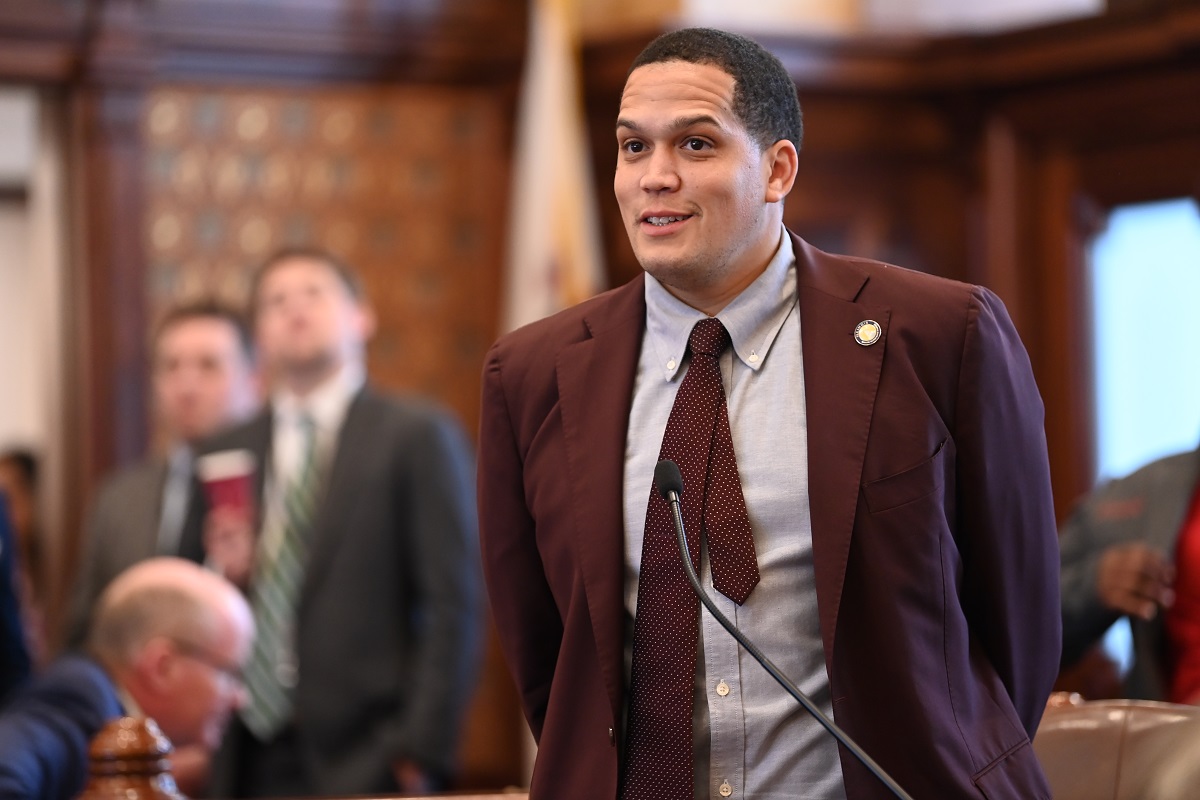 SPRINGFIELD — A new law sponsored by State Senator Robert Peters ensures the state maintains strong protections for wage standards, coal mine safety and occupational health, even if federal laws are weakened or repealed.
SPRINGFIELD — A new law sponsored by State Senator Robert Peters ensures the state maintains strong protections for wage standards, coal mine safety and occupational health, even if federal laws are weakened or repealed.
“Our workers are the backbone of our state, and when things become uncertain at the federal level, it’s our job to ensure their rights are protected,” said Peters (D-Chicago). “This law sends a clear message that in Illinois, we fight for working people, and we will not back down.”
The law prevents the Illinois Department of Labor and Department of Natural Resources from adopting any rules less protective than those in effect under federal law as of April 28, 2025. Peters’ law also requires IDOL to restore any repealed federal occupational safety rules not already covered under state law and allows legal actions against employers who violate them.
Read more: Law led by Peters protects Illinois workers from federal rollbacks
- Details
- Category: Senator Robert Peters News
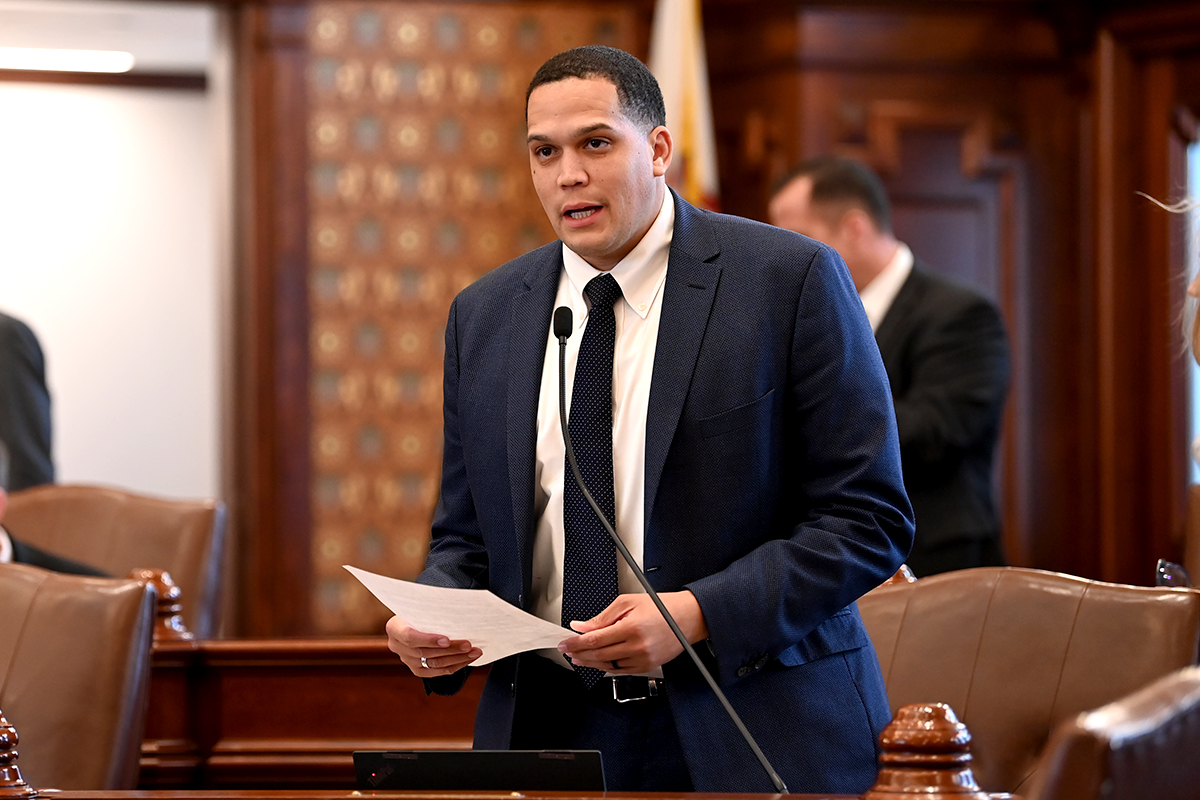 CHICAGO — In recent public remarks, the federal administration threatened to change statutes on cash bail in Illinois and Washington, D.C., accusing the SAFE-T Act and the end of cash bail of increasing crime rates in Chicago. To set the record straight on both the law and the facts, State Senator Robert Peters (D-Chicago) released the following statement:
CHICAGO — In recent public remarks, the federal administration threatened to change statutes on cash bail in Illinois and Washington, D.C., accusing the SAFE-T Act and the end of cash bail of increasing crime rates in Chicago. To set the record straight on both the law and the facts, State Senator Robert Peters (D-Chicago) released the following statement:
“Once again, the federal administration is spreading dangerous misinformation – this time falsely claiming the end of cash bail in Illinois has led to rising crime rates across the state, particularly in Chicago, and that murderers are being released the same day they commit a crime. This could not be further from the truth.
“Not only are these claims blatantly wrong, they are intentionally misleading in order to spread fear. The truth is very simple: Illinois now prioritizes public safety over wealth. Under our state’s criminal justice system reform, individuals are detained or released based on whether they pose a risk to the community or are likely to flee – not on whether they can afford to foot the bill. That means someone with money doesn’t get a free pass, and someone without it isn’t jailed simply because they’re poor.
Read more: Peters responds to Washington’s bail reform myths, calls for honest leadership
- Details
- Category: Senator Robert Peters News

SPRINGFIELD — To reinforce the supportive role of the Department of Children and Family Services, State Senator Robert Peters led a new law to remove the agency’s authority to operate its own law enforcement agency.
“Families who are in need of DCFS’ services are already experiencing hardship – the last thing they need is to be treated like criminals by an agency meant to be offering support,” said Peters (D-Chicago). “This law ensures these families receive the respect and care they deserve and that DCFS helps the way it was intended.”
Peters’ law removes the department’s statutory authority to appoint personnel to act as peace officers in counties with more than 500,000 people. Instead, it reaffirms that any law enforcement needs involving DCFS will be handled by local or state police.
Read more: Peters’ law reinforces DCFS as family support agency
- Details
- Category: Senator Robert Peters News
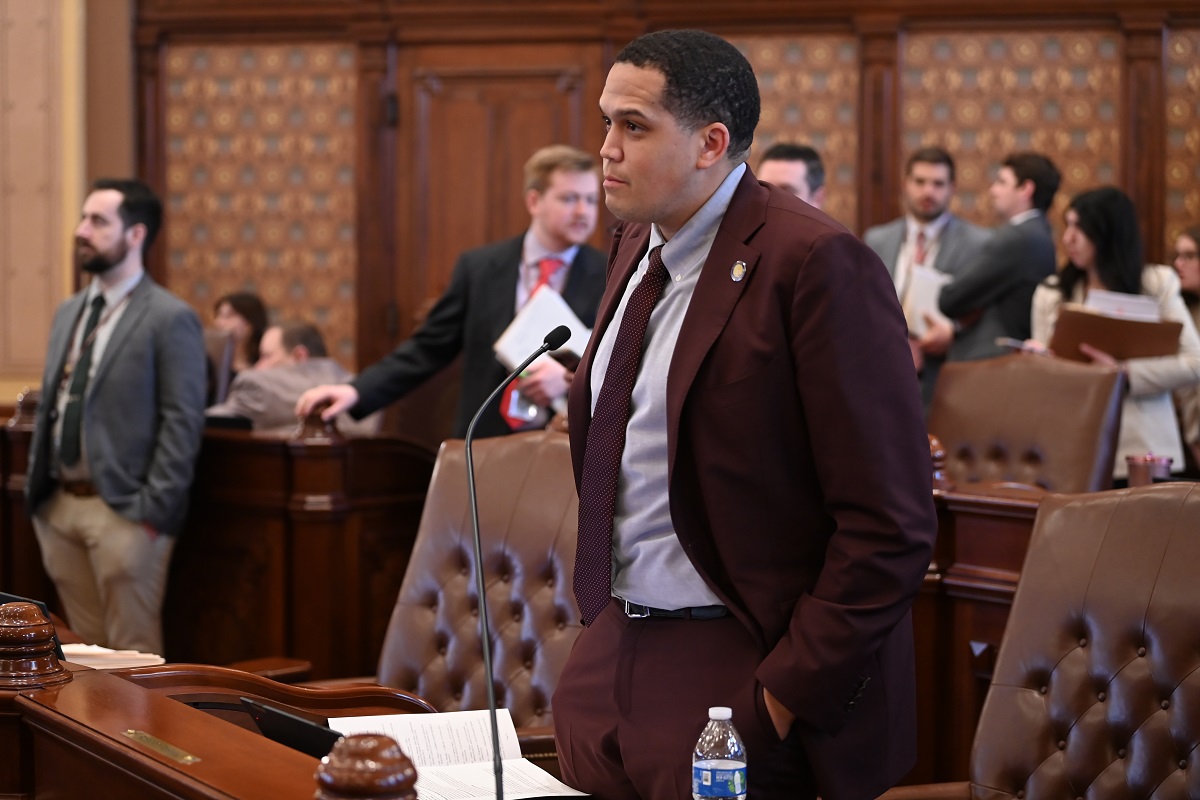
“Our residents deserve retirement savings options that offer them greater flexibility and control while still prioritizing their financial security,” said Peters (D-Chicago). “This law does just that – empowering people to tailor their financial planning, addressing financial vulnerability and promoting equity in retirement savings.”
In 2015, the state created the Illinois Secure Choice Savings Program to address the growing gap in retirement savings for Illinois workers. Nearly 40% of private sector workers in Illinois do not have access to an employer-sponsored retirement plan, leaving many with no way to save for the future. Since its inception, the program has helped over 150,000 participants save more than $200 million for retirement, with more than 25,000 employers offering the program to their workers.
Read more: Retirement savings options expanded under Peters’ law
- Details
- Category: Senator Robert Peters News
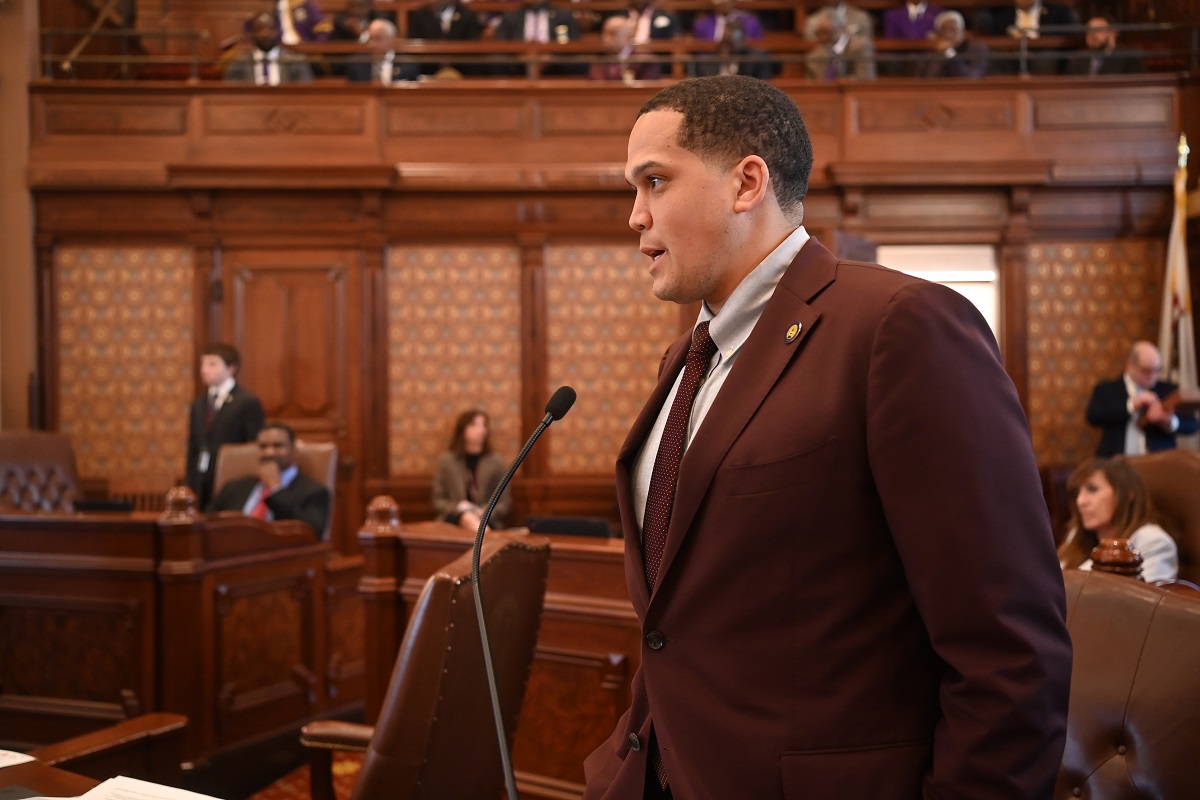
“We’re dedicated to improving mental health outcomes, reducing stigma and optimizing resource allocation for mental health services,” said Peters (D-Chicago). “We must prevent individuals from falling through the cracks, and we do that by equipping crisis responders with the skills to assess needs accurately and connect people with the appropriate care.”
Under Peters’ law, the implementation deadline of the Community Emergency Services and Support Act is extended until July 1, 2027, ensuring a more thorough and thoughtful rollout of critical services. The law comes at a time when mental health services are under increasing strain, with more people experiencing mental health crises and a heightened demand for accessible care.
Read more: Peters’ law overhauls state’s mental health crisis response system
More Articles …
Page 1 of 23













 © 2026 Illinois Senate Democratic Caucus
© 2026 Illinois Senate Democratic Caucus